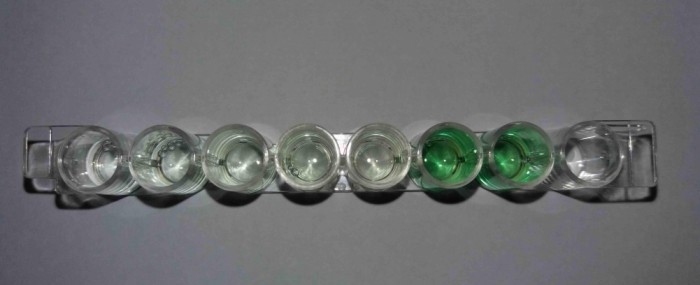
Kit will identify genetic variations without need for lab analysis
22 de agosto de 2017Scheme Lab, a biotech startup incubated at the Center for Innovation, Entrepreneurship & Technology (CIETEC), in São Paulo, Brazil, is developing genetic tests that can be used anywhere - in factories, on farms, or even at home - without the need for analysis by specialized laboratories.
These "point-of-care" tests will identify genetic alterations that can be used to measure meat quality, the characteristics of seedlings and plants, or the resistance of disease-transmitting mosquitoes, such as Aedes aegypti, to pesticides used against them.
"We're at the prototype stage," says biologist John Katz, a US citizen who before becoming an entrepreneur, earned a PhD from the University of Chicago, pursued postdoctoral studies at Harvard Medical School, and worked as a patent agent at the US law firm Finnegan Henderson.
From the start, Scheme Lab aimed at the development a new diagnostic device that could rapidly and simply detect single nucleotide polymorphisms (SNPs), a type of DNA sequence variation that accounts for over 90% of genetic variation in humans, Katz explained. SNP detection tests can be used in people, animals, and plants to identify diseases, physical traits and even individuals.
The firm submitted a proposal to the São Paulo Research Foundation (FAPESP), through its Innovative Research in Small Business (PIPE) Program, and received approval in late 2012. In the first phase of the project, Scheme Lab focused on developing a prototype for diagnosis purposes, which could render unnecessary all the complex devices like PCR thermocyclers, DNA sequencers or microarrays only clinical laboratories are capable of maintaining and operating through means of trained personnel.
Scheme Lab's prototype comprises of a simple portable kit that used saliva to produce a colored result visible to the naked eye for detecting DNA sequences associated with eye color (blue, brown or both). The prototype was optimized, and the main technology plus enhancements were patented by the firm, which dubbed the new product Simple SNP.
Diversification
Having tested the technology and its application, the firm began looking at other markets. "The test platform can be used for any kind of genetic sequencing," says Katz. "We decided to switch focus to the corporate sector and invest in custom tests."
In phase 2 of PIPE, which now had this new market perspective, Scheme Lab developed two new versions of the prototype, one in collaboration with a leading Brazilian agribusiness firm. "This firm produces plants and seeks varieties with superior physical characteristics, many of which are associated with SNP-type DNA sequences. The test will help identify plants on the client's own production premises," Katz explains.
In phase 3 of PIPE, currently in progress, the firm is developing prototypes to produce a genetic test for use in agriculture and food. "One of our targets is the meat market, and the focus is on livestock breeders or meat packers," Katz says.
"Point-of-care" molecular diagnosis is a new area in the marketplace. "We're looking for partners and we've already talked to about 12 potential clients interested in having custom tests to diagnose genetic traits in agriculture, food, and healthcare, among others," Katz says.
Before settling himself as an entrepreneur in Brazil, where he is stablished since 2004, Katz consulted his network of contacts in the US. "Their view was that every country has its advantages and that Brazil had significant potential in biotech, as well as offering resources to support startups," he adds.
###
Also published at Eurekalert: www.eurekalert.org/pub_releases/2017-09/fda-kwi091517.php
